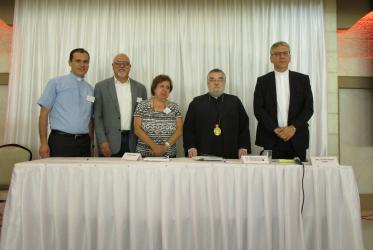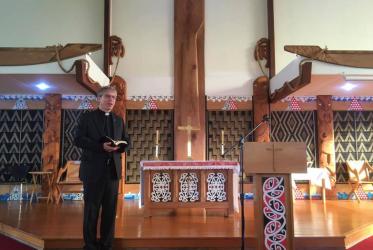Displaying 121 - 140 of 328
Plans for 2017 decided by WCC Executive Committee
01 December 2016
WCC general secretary visits Aotearoa New Zealand
10 October 2016
WCC appeals for support, for all to stand #WithRefugees
31 August 2016
Nigerian Christians and Muslims open historic peace centre
20 August 2016





